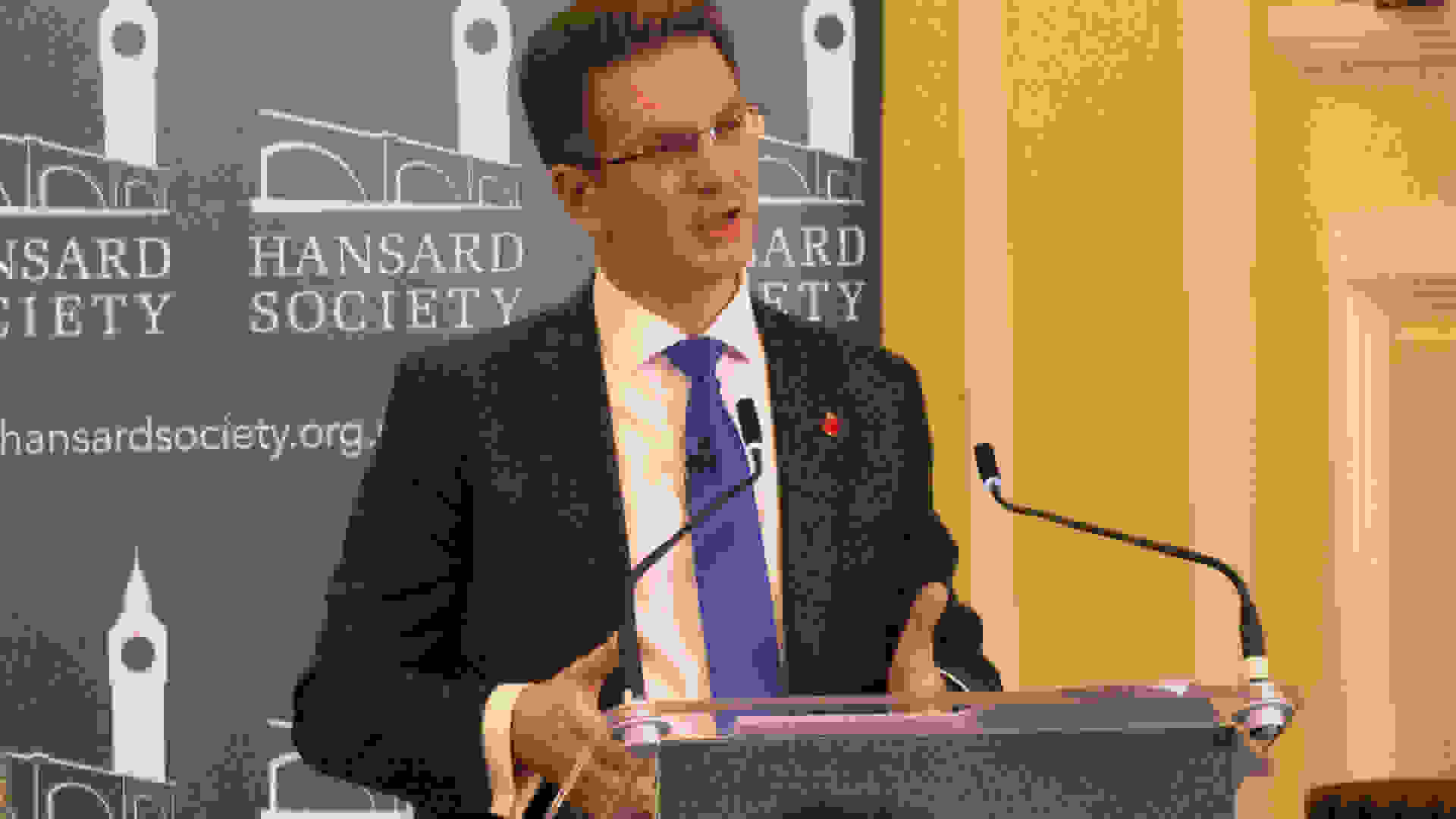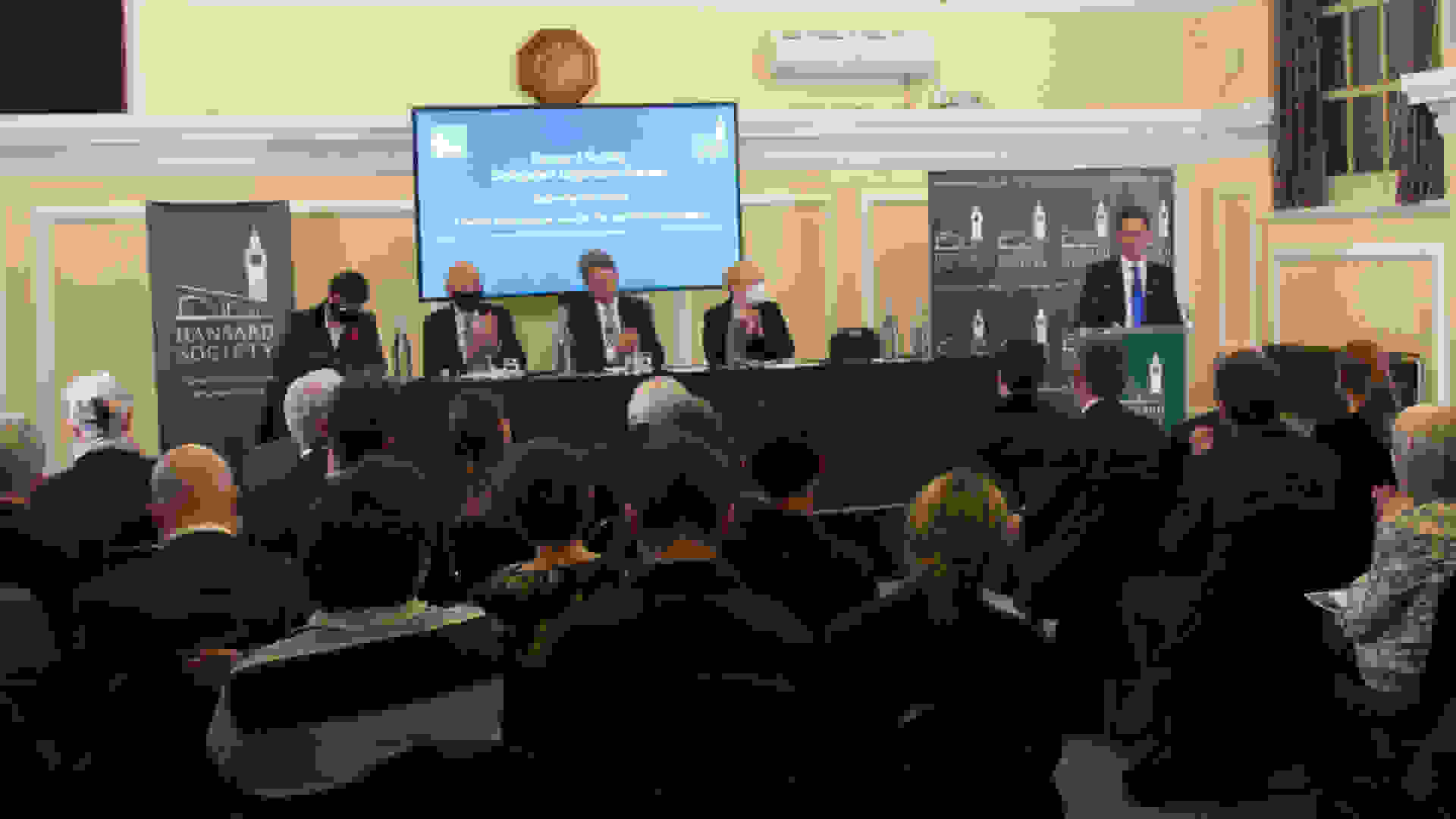Publications / Democratic control of political power matters: keynote address by Steve Baker MP
The full text of the keynote address given by Steve Baker MP at the launch of the Hansard Society Delegated Legislation Review, 2 November 2021.


On 2 November, the Society launched its Delegated Legislation Review to an audience of MPs, Peers and constitutional experts. The event – which included two panel discussions with Members from across the political spectrum and a keynote address by Steve Baker MP – unpacked the problems with the delegated legislation system and explored avenues for reform.
Speakers
Thangam Debbonaire MP
Patrick Grady MP
Mark Harper MP
Chair: Dr Ruth Fox, Director, Hansard Society
The Delegated Legislation Review: presentation by Dr Ruth Fox, Director, and Dr Tom West, Delegated Legislation Review Manager, Hansard Society
The full text of the keynote address given by Steve Baker MP at the launch of the Hansard Society Delegated Legislation Review, 2 November 2021.

Keynote address: Steve Baker MP
Respondents: Dame Angela Eagle MP and The Rt Hon the Lord Judge
Chair: Murray Hunt, Director of the Bingham Centre for the Rule of Law

This work is supported by the Legal Education Foundation as part of the Hansard Society's Delegated Legislation Review.
MPs will debate the fourth anniversary of Russia’s invasion of Ukraine; changes to the Charter for Budget Responsibility; student loan repayments; support for bereaved children; and St David’s Day. They will also consider the Armed Forces Bill, the Industry and Exports (Financial Assistance) Bill, and the Cyber Security and Resilience (Network and Information Systems) Bill. Cabinet Ministers Steve Reed, Wes Streeting, Douglas Alexander, and Lisa Nandy face departmental questions. In the Lords, Peers will scrutinise the Tobacco and Vapes Bill, the Crime and Policing Bill, and the National Insurance Contributions Bill, alongside debates on UK–EU relations and transnational repression. Select Committees will question the Bank of England Governor, former OBR chairs, standards regulators, and Ministers, including an inquiry into trade sanctions.

Why is Britain’s first female Cabinet Minister largely forgotten? Historian Nan Sloane discusses her new biography of Margaret Bondfield, the trade unionist who became the first woman in the British Cabinet. Rising from harsh shop-floor conditions to national prominence, Bondfield took office as Minister of Labour in 1929 at the onset of the Great Depression. As economic crisis split the Labour Party, her reputation never recovered. Was she a pioneer, pragmatist, or unfairly judged? Listen and subscribe: Apple Podcasts · Spotify · Acast · YouTube · Other apps · RSS

On the fourth anniversary of Russia’s invasion of Ukraine, Dr Sarah Whitmore will be speaking to us about how the Ukrainian Parliament has functioned under wartime conditions. 6:00pm-7:30pm on Tuesday 24 February 2026 at the Houses of Parliament, Westminster

Labour MP Neil Duncan-Jordan reflects on rebelling against the whip and calling for Keir Starmer to resign, as we assess the fallout from the Mandelson–Epstein affair and its implications for the Government’s legislative programme and House of Lords reform. We examine Gordon Brown’s sweeping standards proposals, question whether they would restore public trust, revisit tensions over the assisted dying bill in the Lord and discuss two key Procedure Committee reports on Commons debates and internal elections. Listen and subscribe: Apple Podcasts · Spotify · Acast · YouTube · Other apps · RSS

The Restoration and Renewal Client Board’s latest report once again confirms what Parliament has known for nearly a decade: the cheapest, quickest and safest way to restore the Palace of Westminster is for MPs and Peers to move out during the works. The “full decant” option was endorsed in 2018 and reaffirmed repeatedly since. Remaining in the building could more than double costs, extend works into the 2080s, and increase risks to safety, accessibility and security. With the Palace already deteriorating and millions spent each year on patchwork repairs, further delay would itself be an expensive course of action, one that defers decisions without offering a viable alternative.

